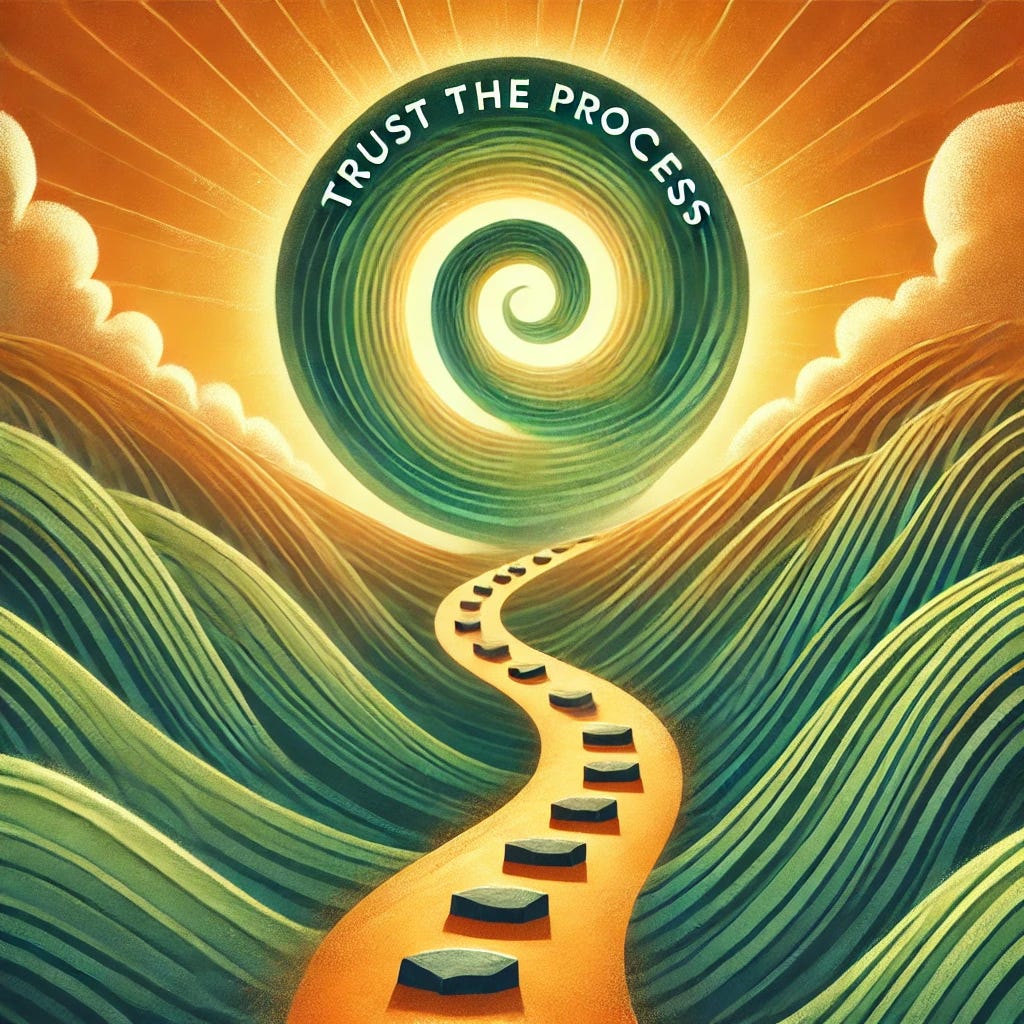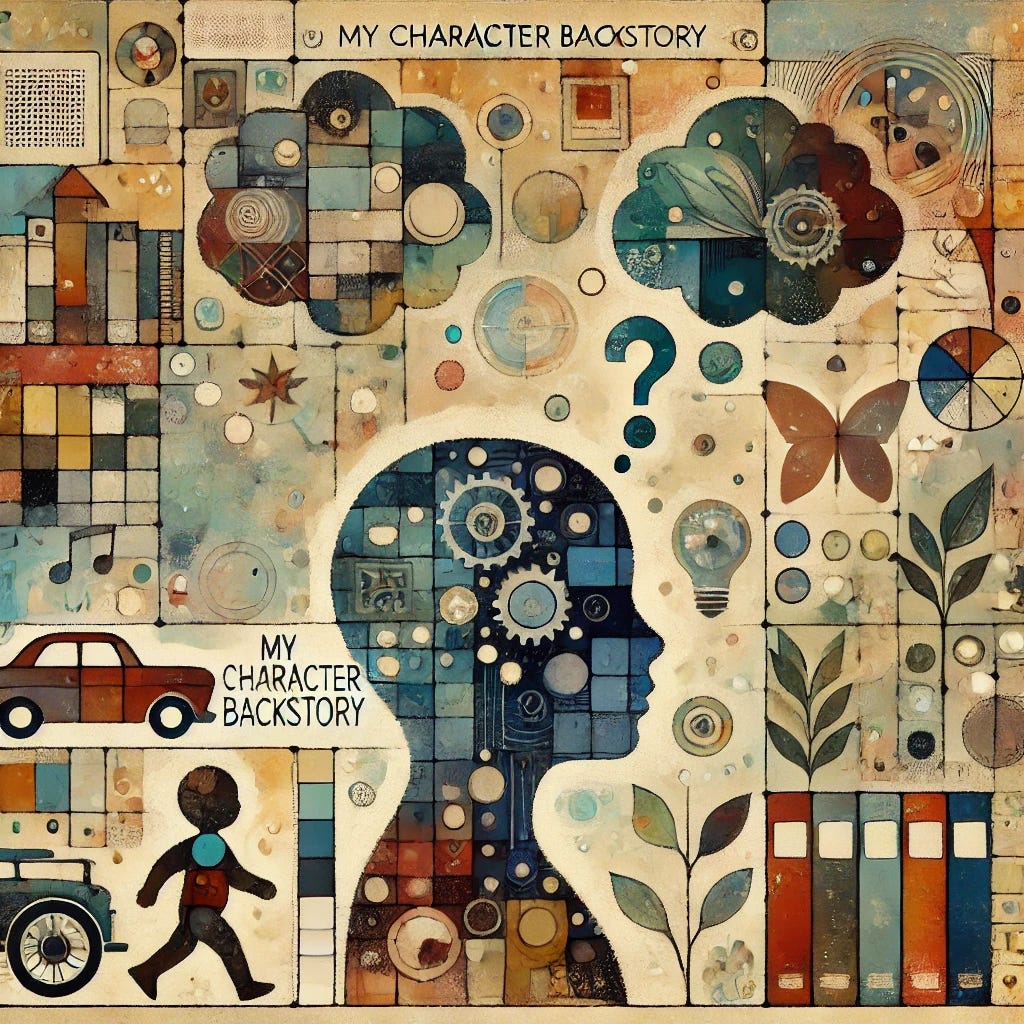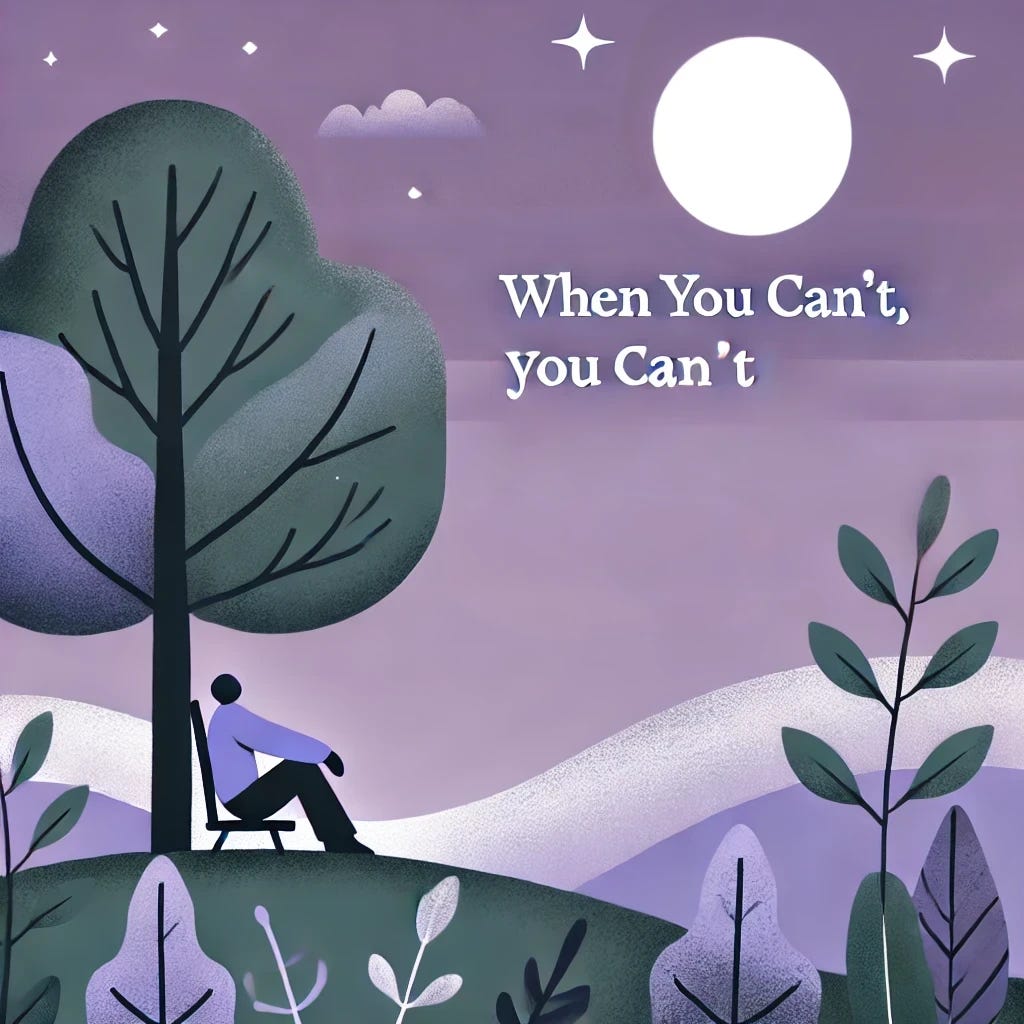2025 - Stepping Out of the Shadows
Discovering the beauty, challenges, and resilience of parenting while navigating life on hard mode.
They say life doesn’t come with a manual, but for some of us, it feels like we’re playing on hard mode without the cheat codes. That’s how I felt before I discovered the term “neurospicy.” It wasn’t just me—it was my kids, too, all navigating a world that wasn’t designed for brains like ours. This isn’t a post about perfect parenting or magical solutions. It’s about the messy, beautiful reality of embracing who you are, breaking down walls you didn’t even know you built, and finding the strength to start over when life asks you to. Today, we’ll explore the courage it takes to step out of the shadows and into the light of self-discovery and connection.
🌌🕊✨ When I first started thinking about this post, I did what any good neurospicy person does when faced with an intimidating task: I avoided it. Not just the casual, “Oh, I’ll get to it tomorrow” kind of avoidance, but the full-on, brain-fog-fueled, “Maybe if I clean out the junk drawer first, I’ll feel ready” brand of procrastination. That’s the thing about demand avoidance. It’s not just about skipping out on something you don’t want to do—it’s about the overwhelming weight of expectation, even if it’s coming from yourself. Writing this post feels like stepping into a spotlight I’ve spent years dodging, and the truth is, it’s terrifying.
💡☕✨ So, why now? Why write about being neurospicy—a term I adore for its blend of whimsy and truth—and why share it in this way? The short answer is that I’m tired of masking. The longer answer is that, as a middle-aged parent of neurospicy kids, I’ve realized that understanding and embracing this part of myself isn’t just about me. It’s about them, too. It’s about creating a community where they don’t have to wait until adulthood to feel seen. It’s about offering perspective to others who might still be fumbling in the dark, unsure of why they feel so “other.”
What Does Being Neurospicy Mean?
🧠🎨✨ Being neurospicy is living life with a brain that dances to its own beat. It’s the vivid highs of hyperfocus, the depths of sensory overwhelm, the kaleidoscope of emotions that sometimes feels like too much and just enough all at once. It’s the moments of connection where everything clicks and the moments of isolation where nothing does. It’s a term that acknowledges the challenges without stripping away the joy, the creativity, or the beauty of seeing the world differently.
For me, being neurospicy wasn’t a revelation I came to on my own. It took my kids’ diagnoses to light up the puzzle pieces of my own life. Watching them struggle—and thrive—in ways that felt so familiar brought me to a realization I had spent decades avoiding: I wasn’t neurodifficult, as I had been labeled. I was neurospicy. And that changed everything. It turned moments of confusion into clarity, and it gave me a roadmap for navigating a world that often feels like it’s written in someone else’s language. That realization wasn’t just a comfort; it was an invitation to rewrite my story—one that celebrated my differences instead of trying to erase them.
Why This First Post Is Hard
💪🌈🎮 There’s a certain vulnerability in writing this. It’s not just about admitting that I’ve struggled but about sharing the raw, unpolished truth of what it means to live this way. It’s about opening a window to my inner world and trusting that the view will resonate with someone else. That’s scary. But it’s also necessary.
Because here’s the thing: When you grow up neurospicy and don’t know it, you learn to mask. You learn to hide, to blend in, to meet expectations at the expense of your own authenticity. You build walls to protect yourself from judgment and misunderstanding. And those walls don’t just keep others out—they keep you in. Writing this post feels like dismantling those walls, brick by brick, and stepping into the light for the first time. Each word is an act of rebellion against years of silence, and each sentence is a small but significant leap toward authenticity. That’s why this post is hard: it’s not just writing; it’s unlearning.
It’s also a lot like playing a video game and reaching a point where you realize you’ve hit a wall—not just a metaphorical wall but the kind where you’ve invested hours into building your character, learning the mechanics, and exploring the map, only to discover you’ve been going the wrong way. The game requires you to backtrack, sometimes all the way to the beginning, and start over. It’s demoralizing. You question whether you even want to pick up the controller again. But when you do—when you take that first step back onto the path you were meant to follow—it’s worth it. You find the joy in the journey again. That’s what this feels like: starting over, and trusting that the process will lead somewhere meaningful.
Trust the Process
🔗🌎🎤 I’m fortunate to have a wife and a best friend who never give up in their quest for learning and knowledge. They push and push and push to make sure they understand, and their relentless pursuit of understanding helped create a safe enough space for my own journey of self-discovery. You need that person in your life—someone strong enough to let you feel safe enough to learn who you really are inside without the fear that your world will shatter into a million pieces. Their strength and support have been my anchor, and their belief in me gave me the courage to begin peeling back the layers of who I am.
One of the most challenging yet rewarding lessons I’ve learned is to trust the process—even when it feels uncertain or overwhelming. For me, the process often begins with the smallest of steps: sitting quietly, naming the emotions I’m feeling, and acknowledging their weight without judgment. Sometimes it’s writing down one thought at a time or breaking a daunting task into manageable pieces. Other times, it’s simply giving myself permission to rest and recharge before diving back in.
One of the most challenging yet rewarding lessons I’ve learned is to trust the process—even when it feels uncertain or overwhelming. For me, the process often begins with the smallest of steps: sitting quietly, naming the emotions I’m feeling, and acknowledging their weight without judgment. Sometimes it’s writing down one thought at a time or breaking a daunting task into manageable pieces. Other times, it’s simply giving myself permission to rest and recharge before diving back in.
The process is unique to each of us. For some, it might look like a daily routine—a series of habits that create a sense of stability amidst chaos. For others, it’s about embracing spontaneity and leaning into creativity as a guiding force. What’s consistent, though, is the idea that progress isn’t linear. It’s messy and full of detours, but those detours often lead us to the most unexpected and meaningful discoveries.
Learning to trust the process means accepting that it’s okay to not have all the answers right away. It’s okay to feel stuck or frustrated. The key is to keep moving, even if it’s just one small step at a time. It’s about showing up for yourself, even when it feels hard, and believing that the effort will be worth it. Because it will be. The process may not look the same for everyone, and that’s the beauty of it—each journey is as individual as the person walking it.
My Character Backstory
🎩🍂🌧️ If this were a novel, my character backstory would be filled with clues to my neurospiciness that no one, least of all me, picked up on. The sensory meltdowns over itchy clothes. The encyclopedic knowledge of random topics that would consume me for weeks. The constant chatter in my head that never seemed to match the world around me. I was “quirky,” “sensitive,” and “a bit much.” And I believed those labels because they were easier to swallow than the truth: I was different in ways I didn’t yet have the words to explain.
It wasn’t until my kids came along, each bringing their own neurospicy brilliance into the world, that I started to see myself clearly. Their challenges mirrored my own, their strengths shone a light on mine, and their struggles demanded that I stop running from my own. It’s funny how parenthood can do that—force you to confront the things you’ve spent a lifetime avoiding. They needed me to be my authentic self, and in doing so, they gave me permission to find myself. It’s as if their journeys became a mirror, reflecting back parts of myself I had forgotten or ignored. Parenthood has a way of turning the mundane into transformative, soul-shaking moments that leave you changed in the best possible ways.
Community and Connection
💬🌟🤝 One of the hardest parts of being neurospicy is the loneliness. It’s easy to feel like you’re the only one navigating this labyrinth of thoughts, feelings, and experiences. But the truth is, there’s a whole community out there—a beautiful, vibrant tapestry of people who get it. And finding that community can be life-changing.
For me, connection has been the antidote to the isolation I didn’t even realize I was carrying. It’s in the shared stories, the knowing nods, the moments of, “Yes, that’s exactly how it feels!” that I’ve found a sense of belonging I never knew I was missing. And that’s part of why I’m writing this—to extend a hand to anyone who might feel alone in their neurospiciness and say, “You’re not.” Because connection isn’t just a luxury; it’s a lifeline. It’s what transforms survival into thriving, and it’s what makes the hardest days just a little bit easier to bear.
The Gift of Perspective
🔬🌞🌿 One of the unexpected blessings of being neurospicy is the gift of perspective. When your brain doesn’t work like everyone else’s, you see the world in ways that others might miss. You notice the beauty in the mundane, the patterns in the chaos, the connections that aren’t immediately obvious. It’s like living life with a lens that magnifies both the wonder and the complexity of the world around you.
This perspective has been both a challenge and a strength. It’s made me more empathetic, more creative, and more attuned to the nuances of human experience. It’s also made me more aware of the ways we, as a society, fail to support those who don’t fit neatly into the norm. But awareness is the first step toward change, and I’m hopeful that sharing this perspective can be a small part of that. If being neurospicy has taught me anything, it’s that the world needs more of what we bring: a deeper understanding of others, an ability to think outside the box, and the courage to challenge the status quo.
When You Can’t, You Can’t
🕵️♂️🌚🌲 Burnout is a word we throw around a lot, but when you’re in the thick of it, it’s so much more than just being tired. It’s a wall that your mind and body throw up to say, “No more.” When you’re burned out, sometimes you just can’t—and that’s okay. One of the hardest lessons I’ve had to learn is to give myself permission to stop, to rest, and to not beat myself up over it. Pushing through isn’t always the answer; sometimes, the most productive thing you can do is absolutely nothing.
During those moments, I’ve found it helpful to create a comforting environment for myself. Sometimes, I would get lost in a video game world, where my brain could take over from my nervous system. In that space, I didn’t have to think about anything but the rules of the game. The repetitive tasks, the immersive scenery, and the sense of progress were all soothing in a way that grounded me when everything else felt too much. Sometimes, that meant sitting on the floor of my closet in complete darkness and quiet, letting the world fade away for a little while. One time, I went out into the backyard and laid in the grass, looking up at the stars until I felt like I could breathe again. One friend builds a red-light cocoon to feel the quiet and safety they need. We all have our ways of finding stillness, and the important thing is to give yourself the grace to do what works for you.—a mental and emotional space where it’s okay to simply be. That might mean curling up with a soft blanket, listening to music that soothes my soul, or just sitting quietly and letting the world move around you. Whatever it looks like for you, the important thing is to remember that rest isn’t a luxury; it’s a necessity. When you’re ready, you’ll find the strength to move forward again. Until then, be kind to yourself. You’re doing the best you can.
Growth happens outside of your comfort zone
🌐🏆🔝 If there’s one thing I’ve learned, it’s that challenges are fertile ground for growth. Being neurospicy isn’t always easy. There are days when the overwhelm feels insurmountable, when the demand avoidance kicks in, and when the weight of expectation threatens to crush me. But those moments have also taught me resilience, creativity, and self-compassion.
Parenting while neurospicy has amplified those lessons tenfold. My kids don’t need a perfect parent—they need a human one. They need someone who can show them that it’s okay to struggle, to make mistakes, and to keep trying. They need someone who can model self-acceptance and teach them that their neurospiciness is not a flaw but a strength. And in being that person for them, I’m learning to be that person for myself. Because every challenge is an opportunity—a chance to grow stronger, to learn something new, and to become a better version of myself.
Parenting While Neurospicy
🍼💕🎢 Parenting is hard enough on its own, but parenting while neurospicy is like living life on "hard mode." It’s managing your own sensory needs while navigating theirs. It’s finding the balance between structure and flexibility, between advocating for them and teaching them to advocate for themselves. It’s celebrating their victories, mourning their struggles, and doing your best to be the calm in their storm, even when you’re weathering one of your own.
But it’s also profoundly rewarding. My kids have taught me more about courage, creativity, and connection than I ever thought possible. They’ve shown me the power of authenticity and the importance of embracing who you are, even when it’s hard. And they’ve given me the greatest gift of all: the permission to do the same. Parenting while neurospicy is a dance—one where the rhythm changes constantly, but the love and intention remain steadfast.
Stepping Out of the Shadows
🐼🔆🌕 Writing this post has been an act of courage. It’s been a way of stepping out of the shadows and into the light, of embracing my neurospiciness instead of masking from it. It’s been a chance to share my story in the hopes that it might resonate with someone else’s. And it’s been a reminder that vulnerability is not weakness—it’s strength.
So, if you’ve made it this far, thank you. Thank you for bearing witness to this journey, for holding space for this story, and for being part of a community that celebrates what it means to be neurospicy. My hope is that this post will be the first step in building something beautiful—a space where we can share, connect, and grow together. Because no one should have to navigate this journey alone. And if this post inspires just one person to step out of their own shadows, then every word will have been worth it.
In Closing
🌐📢🎉 Have a neurospicy parenting question? Need advice? Have a story to share? Submit your thoughts to askmcphee@gmail.com or drop a comment below! Let’s navigate this journey together. Your stories, questions, and experiences are what make this journey meaningful, and I hope this can be a place where we all learn from each other.
We’ll be starting with a bi-weekly cadence, and we’re open to taking comments and requests for topics you’d like us to cover. Your input helps shape this space into a true community.












